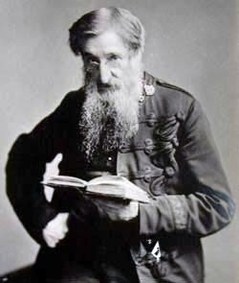
sinners would kneel down on the mucky streets to repent of their sins or at the penitent pence in meetings. He expected sinners to cry hot tears of repentance and arise transformed by the power of God.
By 1879 there were 81 stations manned by 127 Evangelists, a hundred of which were converted through him. These labourers were ridiculed, slandered, scorned and attacked. Wild mobs set their clothes on fire and poured hot tar and burning sulphur on them. Their stations were called barracks and they often had to board up all their windows as stones were hurled through them frequently. Prayer was the backbone of their whole work. By 1884 there was a total of about 900 corps of which 260 were in foreign lands. They had success but a success that normal Christianity did not want to imitate. It is estimated that in the first few years of the 1880’s about 250,000 souls came to old fashioned mourners benches seeking Christ as Saviour through the labours of these soldiers. By 1890 there were 2,900 corps.
Booth inspired a radical form of Christianity that sacrificed all for Christ's service. Led by his example the Army invaded the worst, darkest and hardest areas of towns and cities. Because he wept hot tears in agonizing prayer, and broke and trembled over the reality of an eternal Hell he put fire and urgency in the hearts of those around him. All he touched caught fire. Even his young daughter went to France at 21 and impacted Paris with the Gospel. Booth, the old General, was “promoted to glory” in 1912. By this time the Army was active in 58 countries and colonies.
 RSS Feed
RSS Feed